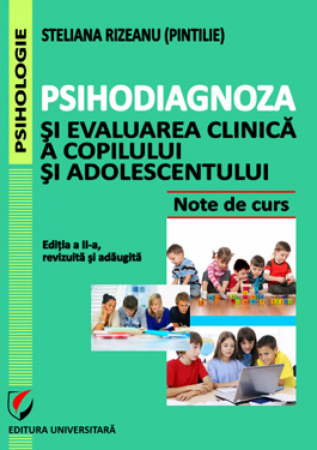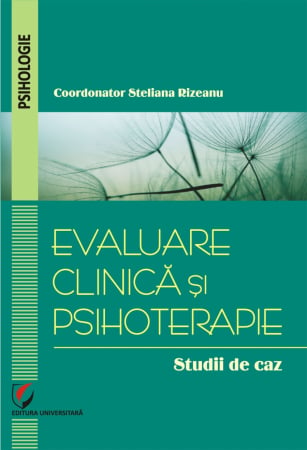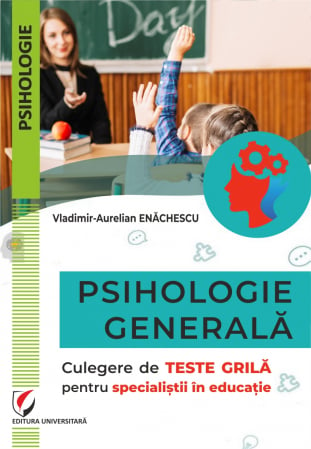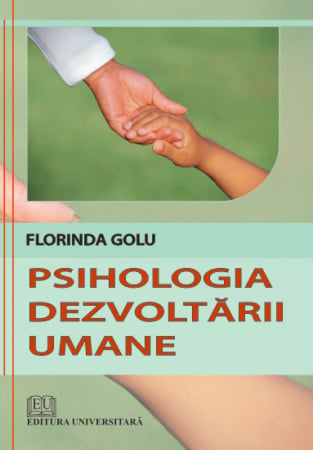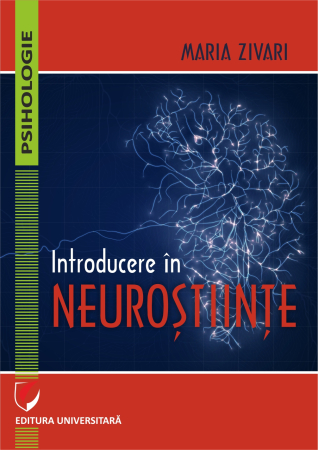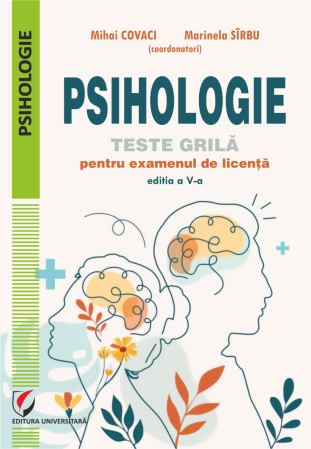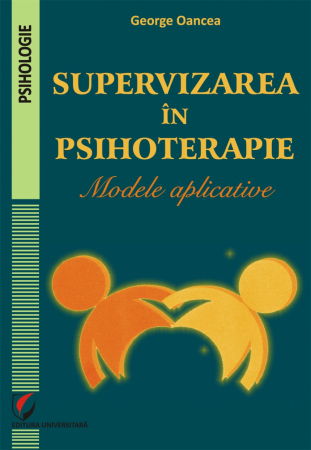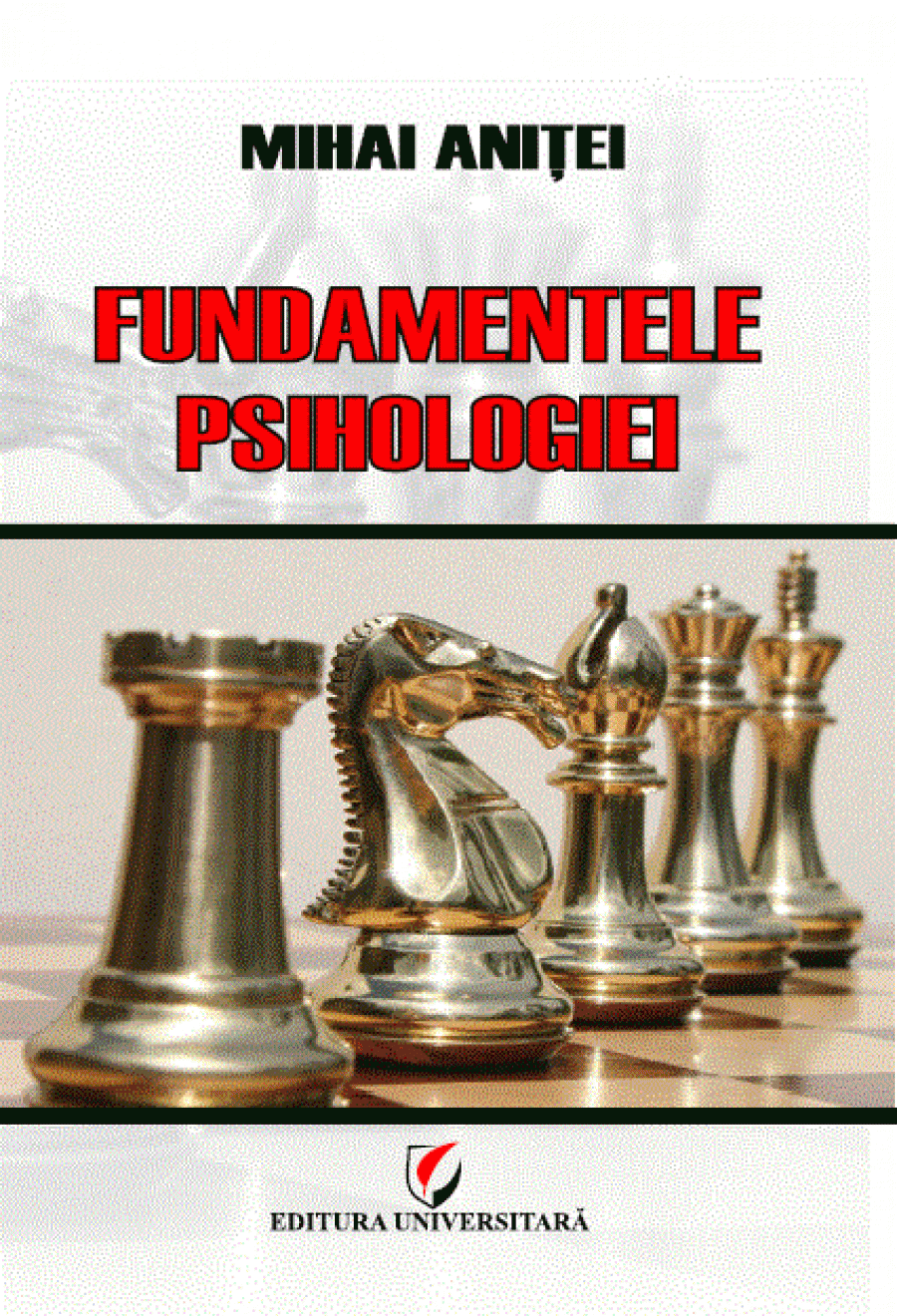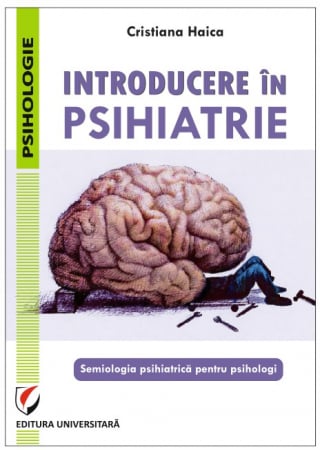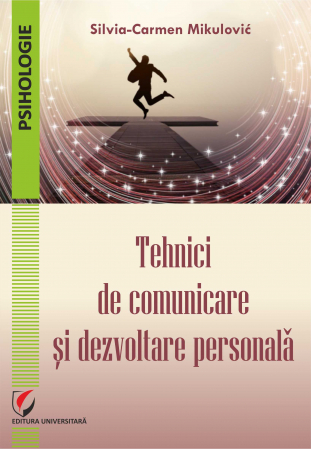ISBN: 978-606-28-1149-5
DOI: https://doi.org/10.5682/9786062811495
Publisher year: 2020
Edition: I
Pages: 221
Publisher: Editura Universitară
Author: Marcela Popescu
- Description
- Download (1)
- Authors
- More details
- Content
- Reviews (0)
The field of educational psychology addresses topics related to motivation and learning, with a general goal of maximizing student success. In today's world, student success is more often seen in terms strictly related to academic achievement and less so in terms of the development of coping. Questions about the responsibility of schools to help students acquire the skills needed to solve problems remain unanswered.
According to Rohrkemper and Corno (1988) an important result of education is the learning by students of healthy ways to cope with stress. Stress management programs should therefore be at the forefront of educational psychology. In reality, little research is published on stress and coping in the educational environment, especially in the primary school environment (Pienaar, 2010), and stress management programs are almost non-existent.
Studies in the field show the main factors of stress in schools as excessive homework and school programs loaded with heavy content.
As a psychotherapist, I was concerned with meeting the problems of schoolchildren and preschoolers through personal development classes within the school curriculum, the Emotion Modeling Workshop or individual meetings, aiming for students to learn the coping strategies necessary to solve problems. personal and interpersonal.
Because there is a great need for coping intervention programs among specialists, we investigated the daily life of schoolchildren, parents and teachers within the Romanian-Finnish Gymnasium School, then creating the intervention programs "YOU ARE A RESOURCE". , FAMILY, A RESOURCE ”and“ SCHOOL, A RESOURCE - HOBBY AND COPING ”. School stress is a universal phenomenon that affects all factors involved.
Optimizing coping strategies is such an important dimension that it is difficult to imagine a real situation in which students do not benefit from it. Resolving conflicts on the sports field, resolving a conflict with a friend, talking to teachers about undesirable behavior, or parents about a limit, are all examples of problems students face. However, teachers and parents know very little about this area of optimizing coping strategies useful for problem solving.
-
Coping strategies for children, parents and teachers. Intervention programs
Download
Middle school students face a variety of challenges every day. Learning to deal effectively with moments of stress is an important part of a child's education, because the ability to adapt to stress will influence academic success and development. However, there is a general lack of research on stress and adaptation in education, and published studies focus on adolescents and adults rather than the daily stress that students encounter at school.
The field of educational psychology addresses topics related to motivation and learning, with a general goal of maximizing student success. In today's world, student success is more often seen in terms strictly related to academic achievement and less so in terms of the development of coping. Questions about the responsibility of schools to help students acquire the skills needed to solve problems remain unanswered.
According to Rohrkemper and Corno (1988) an important result of education is the learning by students of healthy ways to cope with stress. Stress management programs should therefore be at the forefront of educational psychology. In reality, little research is published on stress and coping in the educational environment, especially in the primary school environment (Pienaar, 2010), and stress management programs are almost non-existent.
Studies in the field show the main factors of stress in schools as excessive homework and school programs loaded with heavy content.
As a psychotherapist, I was concerned with meeting the problems of schoolchildren and preschoolers through personal development classes within the school curriculum, the Emotion Modeling Workshop or individual meetings, aiming for students to learn the coping strategies necessary to solve problems. personal and interpersonal.
Because there is a great need for coping intervention programs among specialists, we investigated the daily life of schoolchildren, parents and teachers within the Romanian-Finnish Gymnasium School, then creating the intervention programs "YOU ARE A RESOURCE". , FAMILY, A RESOURCE ”and“ SCHOOL, A RESOURCE - HOBBY AND COPING ”. School stress is a universal phenomenon that affects all factors involved.
Optimizing coping strategies is such an important dimension that it is difficult to imagine a real situation in which students do not benefit from it. Resolving conflicts on the sports field, resolving a conflict with a friend, talking to teachers about undesirable behavior, or parents about a limit, are all examples of problems students face. However, teachers and parents know very little about this area of optimizing coping strategies useful for problem solving.
From the projects developed within the Romanian-Finnish Gymnasium School it emerged that parents are open to the concept of personal development among students, but no longer have the time to collaborate and improve the triad psychologist, student, parent, to know and contribute to development coping strategies of each student.
From personal and training experience, I understood that children's reactions to stress differ depending on their strategies, cognitive, emotional or behavioral strategies. Adapting to stressful situations involves applying several coping strategies that help you cope with stressful situations. Most of the time, students have not developed most of the coping resources. For this reason it is necessary to learn them in a psychotherapeutic setting.
There are differences between the conceptualization of coping in children and the conceptualization of coping in adults due to the stages of cognitive and affective development in which the child is and his lack of experience. Children control stressful situations less than adults, for example they cannot avoid stressors (school stress or family conflicts) as an adult can. Coping strategy development programs have a very important component of children's learning and awareness of the resources they have. Stressful events require students to have cognitive, social, emotional, creative strategies that offer them effective adaptability to stressors. Personal development programs in the school curriculum cover very little of this important issue. This reluctance towards such programs led me to choose the doctoral topic "Optimizing coping strategies for children, parents, teachers" so important for children's school development. I believe that such programs should be implemented at the national level, so that they reach more and more children, parents and teachers. Currently, the intervention is done only in critical situations when students are sent to psychologists for the discipline problems they face. The topic of this research is very topical and can be an important stage in educational practices and research in preschool and school education. Research studies in this direction can be solutions for the development of coping intervention programs among students. Teacher training is urgently needed to provide tools to strengthen coping in students, to provide direct support to them, to increase students' ability to adapt to stress and insecurity, which in reality characterizes the Romanian school.
Adaptation resources can be developed and enriched early on in preparation for stressful situations, increasing the ability to cope with stress, the capacity for personal and community adaptation.
In addition to the responsibility of the school, parents have the essential role in developing coping strategies. In general, parental behavior is inspired by their own life experience, thus perpetuating both positive and negative aspects over several generations. Along with teachers, parents should study the subject of trauma, stress and resilience reactions, develop personal adaptation resources, etc. Programs for parents around the world offer training in the mentioned topics.
The coping intervention programs "YOU ARE A RESOURCE", "FAMILY, A RESOURCE", "SCHOOL, A RESOURCE - HOBBY AND COPING", were tested and validated in the scientific research that took place during September 2016 - October 2018 at the Finnish Gymnasium School.
For the scientific validation of these programs we took into account the theoretical substantiation and the applied development. In order to achieve the theoretical objective, we analyzed the specialized literature regarding the theories about stress and coping, coping strategies, types of intervention programs as well as the importance of coping intervention programs for students.
The applied development of the research consisted in the development of the coping intervention program "YOU ARE A RESOURCE", the development of the program "FAMILY, A RESOURCE" and the program "SCHOOL, A RESOURCE - HOBBY AND COPING" as well as "Qualitative analysis of stress among students "," Qualitative analysis of stress and coping strategies among teachers ".
In the first chapter of this paper we made a brief introduction to the terms "stress" and "coping" followed by the presentation of theories about stress and coping on which the application section was based. Among the theories about stress we presented the systemic approach to stress "based on physiology and psychobiology" (Selye, 1976), the approach to "psychological stress" that developed in the field of cognitive psychology (Lazarus, 1966, 1991; Lazarus & Folkman, 1984; McGrath, 1982) and Folkman's (1984) transactional model that describes and explains the processes an individual goes through to try to cope with stressful situations.
Chapter one also deals with empirical studies on coping strategies in children, parents and teachers as well as optimization psychotherapeutic interventions. Among the theories about coping we presented the model of Roth and Cohen (1986), the model of coping complexity (Hudson, 2016), the coping model of transformation (Corry, Mallett, Lewis & Abdel-Khalek, 2013), collective coping (Chun, Moos & Cronkite, 2006), religious coping, future-oriented coping, BASIC PH model (Lahed et al., 2013).
In chapter two we presented the description of the program "YOU ARE A RESOURCE" followed by the 29 sessions of activities that are meant to support those who want to test the effectiveness of this program and other groups of students and help them in optimizing coping strategies.
Chapter three contains the description of the coping program "FAMILY, A RESOURCE" for parents. This program contains 29 activity sessions that can be applied by families individually to optimize their own coping or with the application of the program, "YOU ARE A RESOURCE" to students.
Chapter four presents a training program for teachers "SCHOOL, A RESOURCE - HOBBY AND COPING" followed by a guide of work activities for them.
The conclusions of this paper emphasize the positive effects of the implementation of intervention programs and emphasize the need to apply these programs in public schools for both students and parents and teachers.
Among the personal contributions we mention:
o Construction and implementation of the coping intervention program "YOU ARE A RESOURCE" for students with applicability during a school year.
o Building and implementing the "FAMILY, A RESOURCE" program for coping intervention for parents.
o Construction and implementation of the program "SCHOOL, A RESOURCE-HOBBY AND COPING" for coping intervention for teachers.
o The “YOU ARE A RESOURCE” program has continuity for the third grade students from the Romanian-Finnish Gymnasium School, being a curriculum for optimizing the coping strategies.
o Creation of activities and therapeutic exercises from eclectic approaches for twenty-nine meetings for children and parents (over 70% of these are personal proposals and the rest are adaptations of existing exercises).
o Coping programs respond to the existing shortcoming in the literature on the eclectic approach in intervention programs. In these programs the interventions are not directed towards stressors, but towards positive emotions, positive events, creative, personal, social, cognitive resources, etc. (Lyubomirsky, 2012).
o Studies have shown that the BASIC PH model (Lahed et al., 2013), rational emotional therapy (Elias, 2006) and the “Leisure Skills” model (Austin, 2008) are useful in designing effective intervention in children, parents and teachers.
o Compilation of programs aimed at positive techniques, which combined relaxation activities with rational emotional therapy techniques taking into account the limited time of participants.
o The program for teachers focused on training teachers to build their own individualized coping intervention plans (involvement in hobbies and recreational activities in nature).
INTRODUCTION / 7
CHAPTER I - THEORIES AND MODELS REGARDING STRESS AND COPING / 11
1.1. Theories and models about stress and coping / 11
1.2. Coping strategies in children, parents and teachers - empirical studies / 31
1.3. Psychological interventions for optimizing coping strategies in children, parents and teachers / 46
1.4. Discussions / 61
CHAPTER II - COPING PROGRAM "YOU ARE A RESOURCE" FOR STUDENTS / 62
2.1. Program description “YOU ARE A RESOURCE” / 62
2.2. Testing the effectiveness of the "YOU ARE A RESOURCE" program / 65
2.3. Planning the activities of the “YOU ARE A RESOURCE” program / 66
CHAPTER III - COPING PROGRAM "FAMILY, A RESOURCE" FOR PARENTS / 109
3.1. Description of the program "FAMILY, A RESOURCE" / 109
3.2. Testing the effectiveness of the program "FAMILY, A RESOURCE" / 110
3.3. Planning the activities of the program "FAMILY, A RESOURCE" / 111
CHAPTER IV - THE PROGRAM "SCHOOL, A RESOURCE - HOBBY AND COPING" FOR TEACHERS / 127
4.1. Description of the program "SCHOOL, A RESOURCE - HOBBY AND COPING" / 127
4.2. Testing the effectiveness of the program "SCHOOL, A RESOURCE - HOBBY AND COPING" / 129
4.3. Planning the activities "SCHOOL, A RESOURCE - HOBBY AND COPING" / 130
LIST OF FIGURES, TABLES AND ABBREVIATIONS / 14
ANNEXES / 141
CONCLUSIONS / 193
BIBLIOGRAPHY / 195

6359.png)
![Coping Strategies for Children, Parents and Teachers. Intervention Programs [1] Coping Strategies for Children, Parents and Teachers. Intervention Programs [1]](https://gomagcdn.ro/domains/editurauniversitara.ro/files/product/large/coping-strategies-for-children-parents-and-teachers-intervention-programs-2969-2322.jpg)

